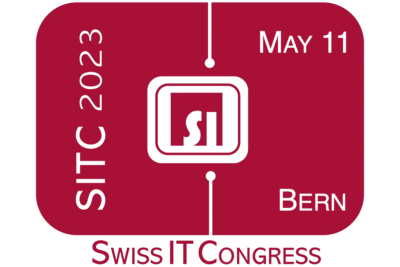Software engineering practices have changed the way we look at organisations. It has become widely accepted that agile practices improve the speed of change. It has been partly understood that teams are more important than processes, as they reduce the biggest risk in many companies which is the failure of communication. And there are considerable attempts to exploit AI through advanced man-machine collaboration, where machines prepare or propose decisions and men make the final decisions or just supervise them. This all is due to groundbreaking initiatives in the area of software industry. Thus, software engineering has made major contribution to corporate culture and is about to transform education.
One could believe that ICT professionals are proud of having changed the world. Above all, educators start to embrace the idea, that advanced computational thinking will a mandatory skill in many academic disciplines, which strongly relates to developments in the area of no code platforms. But many ICT professionals and ICT managers despise these changes in the ICT business. They oppose trends that have persisted for decades, like the trend towards abstraction and transparency in the sense of distributed systems. They despise agile practices, because these practices require both flexibility and discipline both of which are alien to them. They make disparaging remarks about teamwork, because they continue to believe that the ingenious individual will always outperform the team – and because they have never been in the situation to develop a large application system or to implement cybersecurity. They laugh at machine learning, because they disliked their peers from artificial intelligence when this branch of computer science focused on understanding the emergence of human cognition. And above all, they do everything to keep the ranks of ICT closed.
That might seem hard to understand, but it is a type of behavior that can be observed elsewhere, too. Negative reactions towards disciplinary progress is all but unusual. For example, the use of ICT has changed business administration, but many researchers on business administration do not take the burden to understand ICT. They at best use the term agility without understanding the key role of discipline for agile practices. Indeed, most of them have not understood why agile practices have been invented in software engineering in the first place. As another example, business administration itself has changed the economy, but economists do not follow up seriously. They do not realize that theories of their godfathers are shaken – the less if lawyers and non-fiction writers tell them about the possible impacts of big data, as Viktor Mayer-Schönberger and Thomas Ramge did in “Das Digital” (in English: Reinventing Capitalism in the age of Big Data).
The list of cases of fundamental ignorance is long. Everyone seems stick to his or her narratives to defend the own disciplines against invaders from outside. A fundamental narrative of economists tells that business administration is not real economics. A fundamental narrative of business administration tells that ICT is a resource to be treated like a traditional investment in machines. Therefore, it is not surprising that an important narrative among ICT professionals tells that “ICT is something for real men, that is for alphas. You have to be able to assert yourself and counter the terror of others. Collaboration and agility are signs of weakness. The belief in machine intelligence is a sign of stupidity. …” And so on.
Even if life in ICT can be as rugged as it has been described by Ben Horrowitz in “The Hard Thing about Hard Things”, the beliefs cited above have hardly ever been true for successful software engineers. For example, Ben Horrowitz tells us explicitly in his book that they banned terrorizing statements and shouting. Some might wonder why he talks about the obvious. I don’t. I refer to the contradiction between successful practices and popular narratives that can be observed in many places.
If you want to look outside ICT industry (because you are fed up by its internal disputes), look at soccer or philharmonic music. Soccer has turned into a sport where cognition and discipline make the difference, while in philharmonic music, collaboration has been automated. If the first violinist plays a solo, the violinist sitting next to her (or him) will take over her (his) leadership role, because successful leadership must necessarily be a distributed one. If you compare such observations with design principles for distributed systems, you will realize that information processing in orchestras and in computers follow the same principles. We should not be surprised, should we.
It is urgent that we apply the lessons other disciplines have learned from successful practice in software engineering to all of ICT business. It is neither a sign of weakness to rely on established good practices, nor are good practices defined by narratives of the past. Good practices are defined by contemporary success in economic settings that are not protected from competition. They may be designed or researched in ivory towers – that is great and we need more government money for that – but they have to be validated by real world experience.
I understand (to some extent) that improving performance through the application of good practices may be experienced as a disgusting pressure for economic optimisation. But there is considerable evidence, that agility can increase trust and make people happier. There is evidence that most people enjoy a working teamwork and that it can be a fantastic experience to teach a machine intelligent behavior. And there is evidence, that an environment where specialists, domain experts, and users openly collaborate is very attractive to many people. So, let us apply good ICT practices in ICT. There is even evidence that a gender balance in teams contributes to everyone’s wellbeing, at least for most of us. But this is a different story.









